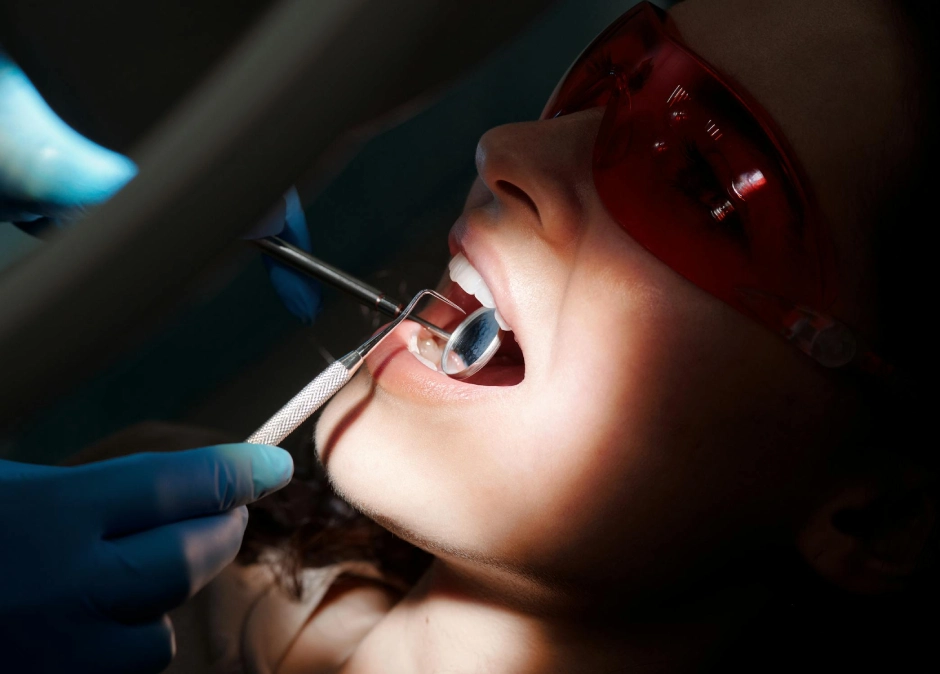Dental emergencies can strike when we least expect them, causing pain, discomfort, and often, a sense of panic. Whether it’s a knocked-out tooth, a broken crown, or severe toothache, dental emergencies can be distressing and often require immediate attention. While some dental issues are unavoidable, there are numerous preventive measures you can take to reduce the risk of dental trauma and avoid dental emergencies altogether. At King Street Dental in Newcastle, we are committed to helping you maintain a healthy smile and avoid common dental emergencies with these essential prevention tips.
1. Wear a Mouthguard for Sports and Physical Activities
One of the most common causes of dental emergencies is trauma to the mouth during physical activities, especially contact sports. A blow to the mouth can result in broken or knocked-out teeth, damaged braces, or injury to the gums and jaw. To prevent this, it’s essential to wear a mouthguard when playing sports or engaging in physical activities.
- Custom Fit is Best: While store-bought mouthguards offer some protection, a custom-fitted mouthguard designed by your dentist provides better protection and comfort. Custom mouthguards are tailored to fit your mouth, offering superior protection for your teeth, gums, and jaw.
- Sports and Beyond: Whether you’re playing football, basketball, or participating in recreational activities like cycling, a mouthguard can protect you from dental injuries.
2. Practice Good Oral Hygiene
Maintaining good oral hygiene is crucial for the overall health of your teeth and gums, and it can also help prevent dental emergencies caused by tooth decay and gum disease. Poor oral hygiene leads to plaque buildup, which can eventually cause cavities, gum infection, and weakened tooth enamel, increasing the risk of tooth fractures or abscesses.
- Brush and Floss Regularly: Brush your teeth at least twice a day and floss once daily to remove plaque and food particles. Make sure you’re brushing with fluoride toothpaste and using a soft-bristled toothbrush to avoid damage to your gums.
- Regular Dental Check-ups: Regular visits to King Street Dental for professional cleanings and check-ups help detect potential problems before they turn into major dental emergencies. Our team can spot early signs of decay, gum disease, or other issues that could lead to an emergency if left untreated.
3. Be Mindful of Your Diet
What you eat plays a significant role in the health of your teeth and gums. A diet high in sugary or acidic foods can contribute to tooth decay and weaken enamel, making your teeth more susceptible to damage. Hard foods can also cause sudden dental trauma, such as cracked teeth or broken fillings.
- Limit Sugary Foods and Drinks: Sugary foods and beverages feed harmful bacteria in your mouth, contributing to tooth decay and gum disease. Reducing the intake of sugary snacks and drinks helps protect your teeth and gums from unnecessary damage.
- Avoid Chewing Hard Objects: Chewing ice, hard candies, or pens can place excessive pressure on your teeth, potentially causing fractures or damage to dental work such as fillings or crowns. Stick to chewing softer foods to minimize the risk of dental trauma.
4. Don’t Use Your Teeth as Tools
Many people use their teeth to open bottles, packages, or even rip through plastic. While it might seem convenient, using your teeth as tools puts them at risk of damage. This kind of misuse can lead to chipped, cracked, or broken teeth, which can quickly turn into a dental emergency.
- Use Proper Tools: Always use scissors, bottle openers, or knives for tasks like opening packages, instead of using your teeth. This simple habit can help prevent dental trauma and save you from costly repairs.
5. Avoid Teeth Grinding (Bruxism)
Teeth grinding, also known as bruxism, is a common issue that can result in significant dental damage if left unaddressed. People often grind their teeth unconsciously during sleep or as a result of stress and anxiety. Over time, this can cause enamel erosion, tooth fractures, and even tooth loss.
- Mouthguards for Bruxism: If you suffer from teeth grinding, wearing a custom-made mouthguard at night can help protect your teeth from damage. A mouthguard will provide a cushion for your teeth and reduce the impact of grinding forces.
- Manage Stress: If stress or anxiety is contributing to your bruxism, finding ways to manage stress, such as through relaxation techniques or therapy, can help reduce the habit and prevent damage to your teeth.
6. Take Care of Your Dental Work
If you’ve had previous dental treatments such as fillings, crowns, or braces, it’s important to take extra care of these restorations to prevent damage or emergencies. While dental work is durable, it is not indestructible, and improper care can lead to issues that may require emergency treatment.
- Avoid Sticky or Hard Foods: Sticky foods like caramel or chewy candies can pull out fillings or damage dental restorations. Similarly, biting into hard foods can cause crowns or fillings to break.
- Check for Loose Restorations: If you notice that a filling or crown feels loose or damaged, contact your dentist immediately to get it fixed. Delaying treatment could result in a more serious dental emergency.
7. Address Dental Problems Early
Ignoring dental issues can lead to bigger problems down the road. Small cavities, gum infections, or bite misalignments can quickly escalate into serious dental emergencies if left untreated. Regular dental visits to King Street Dental can help prevent these issues from developing into emergencies by catching them early.
- Watch for Warning Signs: If you experience symptoms such as tooth pain, swelling, bleeding gums, or sensitivity, don’t wait for the problem to worsen. Contact your dentist for advice and treatment to address the issue before it becomes an emergency.
- Be Proactive: If you have a known dental issue, like a cracked tooth or loose crown, get it checked promptly. Proactive care is the key to avoiding urgent dental problems.
8. Protect Your Teeth During Sleep
If you know that you clench or grind your teeth during the night, investing in a nightguard can prevent damage to your teeth. A custom-fitted nightguard, made by your dentist, will act as a protective barrier between your teeth, reducing the wear and tear caused by bruxism.
Contact King Street Dental for Dental Emergencies and Preventive Care
At King Street Dental, we are dedicated to helping you avoid dental emergencies by providing expert preventive care and education. If you have any questions about preventing dental trauma or need to schedule a check-up, contact us today at (02) 4929 4143 or email us at info@kingstreetdental.com.au. Our team in Newcastle is here to keep your smile healthy and protect you from unexpected dental issues. Stay proactive, and let us help you avoid the stress and discomfort of dental emergencies.

